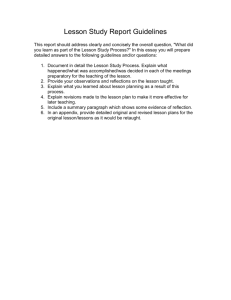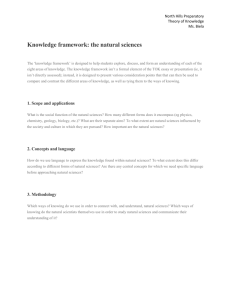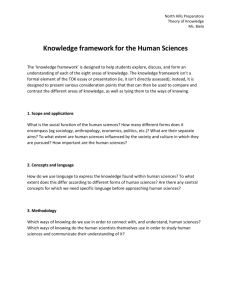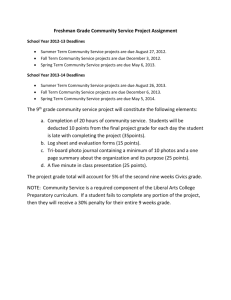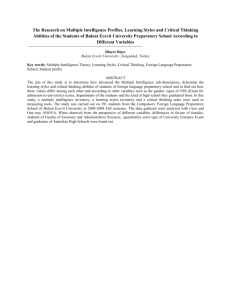Social Work Skills: Generic & Phase-Specific
advertisement
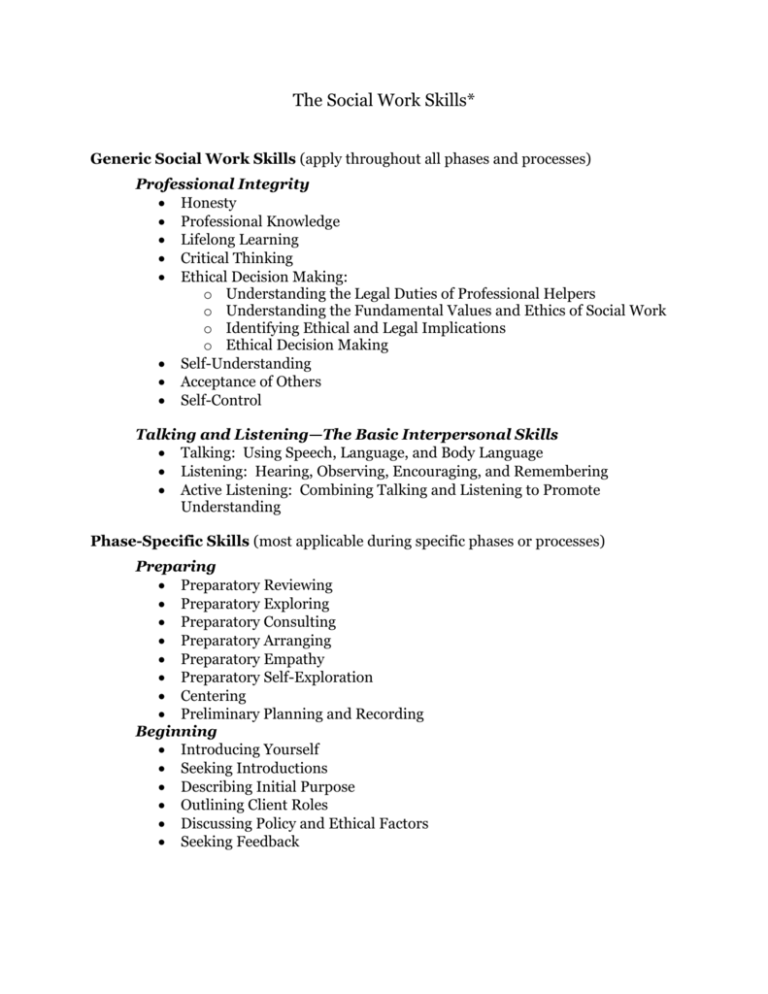
The Social Work Skills* Generic Social Work Skills (apply throughout all phases and processes) Professional Integrity Honesty Professional Knowledge Lifelong Learning Critical Thinking Ethical Decision Making: o Understanding the Legal Duties of Professional Helpers o Understanding the Fundamental Values and Ethics of Social Work o Identifying Ethical and Legal Implications o Ethical Decision Making Self-Understanding Acceptance of Others Self-Control Talking and Listening—The Basic Interpersonal Skills Talking: Using Speech, Language, and Body Language Listening: Hearing, Observing, Encouraging, and Remembering Active Listening: Combining Talking and Listening to Promote Understanding Phase-Specific Skills (most applicable during specific phases or processes) Preparing Preparatory Reviewing Preparatory Exploring Preparatory Consulting Preparatory Arranging Preparatory Empathy Preparatory Self-Exploration Centering Preliminary Planning and Recording Beginning Introducing Yourself Seeking Introductions Describing Initial Purpose Outlining Client Roles Discussing Policy and Ethical Factors Seeking Feedback Exploring Asking Questions Seeking Clarification Reflecting Content Reflecting Feelings Reflecting Feeling and Meaning Partializing Going Beyond What Is Said Assessing Organizing Descriptive Information Formulating a Tentative Assessment Contracting Reflecting an Issue Identifying an Issue Clarifying Issues for Work Establishing Goals Developing an Action Plan Identifying Action Steps Planning for Evaluation Summarizing the Contract Working and Evaluating Rehearsing Action Steps Reviewing Action Steps Evaluating Focusing Educating Advising Representing Responding with Immediacy Reframing Confronting Pointing Out Endings Progress Recording Ending Reviewing the Process Final Evaluating Sharing Ending Feelings and Saying Goodbye Recording the Closing Summary *Cournoyor, Barry. (2000). The Social Work Skills Workbook, 3rd Edition (pp inside front cover). Belmont, CA: Wadsworth.


